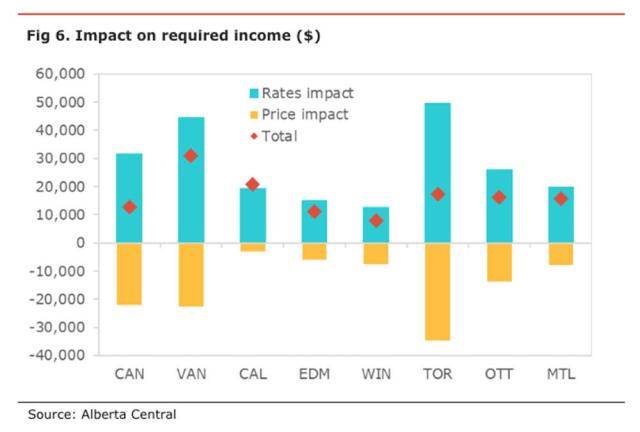Money For Streamers, Confusion For Viewers: Navigating The New Streaming Economy

Table of Contents
How Streamers Make Money: Diverse Revenue Streams
Streamers employ a variety of strategies to monetize their content, creating a diverse revenue landscape. Understanding these models is crucial to grasping the financial dynamics of the streaming economy.
Subscription Services: The Foundation of Many Streaming Businesses
Subscription-based services like Netflix, Disney+, and Hulu form the cornerstone of many streaming platforms' revenue models. These platforms rely on consistent monthly or annual fees from subscribers to fund their operations and content creation.
- Subscription fees: Vary greatly depending on the service and any add-on features.
- Tiered subscriptions: Many platforms offer varying tiers, including ad-supported options at lower prices and premium ad-free options at higher price points.
- Subscriber count: The number of paying subscribers is the most important metric for the financial health of these services. Higher subscriber counts directly translate to increased revenue.
The success of subscription-based streamers hinges on consistently attracting and retaining subscribers. Maintaining a robust library of engaging content and a positive user experience are critical factors in this regard.
Advertising Revenue: A Significant Income Source for Many Platforms
Ad-supported streaming services, such as many free tiers of platforms or dedicated ad-supported services like Tubi and Pluto TV, generate revenue through advertising. This model relies on displaying ads to viewers during or between content.
- CPM (Cost Per Mille): Advertisers pay based on the number of times their ads are displayed (per thousand impressions).
- Ad placement strategies: Optimizing ad placement is vital to maximizing revenue while minimizing disruption to viewer experience.
- Viewer demographics: Advertisers often target specific demographics, so a streamer's audience demographics significantly impact their advertising revenue potential.
The effectiveness of advertising revenue generation depends on factors such as viewership numbers, ad engagement (click-through rates), and the ability to target relevant advertising to the audience.
Affiliate Marketing and Sponsorships: Building Partnerships for Profit
Many streamers build partnerships with brands through affiliate marketing and sponsorships, opening up another revenue stream.
- Product placement: Subtly integrating products or brands into streams.
- Affiliate links: Providing links to products, earning a commission on sales generated through those links.
- Sponsored streams: Dedicated streams focused on promoting a particular brand or product.
- Brand deals: Longer-term agreements with brands for ongoing promotion and collaborations.
Effective sponsorship strategies balance brand promotion with authentic content creation to maintain viewer engagement and trust.
Donations and Subscriptions (on Platforms like Twitch): Direct Support from Viewers
Platforms like Twitch enable direct financial support from viewers through donations and subscriptions.
- Donations: One-time monetary gifts from viewers.
- Subscriptions: Recurring monthly payments from viewers who become "subscribers" to a channel.
- Bits: A virtual currency purchased by viewers and used to cheer during streams.
- Emotes: Customizable emojis available to subscribers.
Building a strong and loyal community is essential for success in this model. Engaging with viewers and fostering a sense of belonging encourages donations and subscriptions.
Merchandise and Other Ventures: Diversifying Income Streams
Successful streamers often expand their income beyond their primary streaming activities.
- Merchandise: Selling branded clothing, accessories, and other items directly to their audience.
- Online courses: Offering courses or tutorials related to their expertise.
- Appearances: Participating in events, conventions, or podcasts.
Diversification reduces reliance on a single income source and strengthens the streamer's overall brand and financial stability.
The Challenges for Viewers: Cost and Content Overload
While the streaming economy offers a vast library of content, it also presents significant challenges for viewers.
The Cost of Streaming Subscriptions: Subscription Fatigue
The increasing number of streaming platforms and their associated subscription fees are leading to "subscription fatigue."
- Subscription fatigue: The feeling of being overwhelmed by the cost and number of streaming subscriptions.
- Cost comparison: Consumers are forced to constantly compare the value and cost of different platforms.
- Bundling options: While some bundling options exist, they don't always cover the desired content.
This rising cost is impacting household budgets and forcing many consumers to make difficult choices about which services to subscribe to. Account sharing has become a common tactic to mitigate the escalating cost.
Navigating the Content Landscape: Fragmentation and Discoverability
The fragmentation of content across numerous platforms makes finding desired shows and movies challenging.
- Content fragmentation: Specific titles are often only available on one platform.
- Regional variations: Content libraries vary significantly across geographic regions.
- Lack of discoverability: Finding specific titles within a vast library can be incredibly difficult.
This content fragmentation contributes to viewer frustration and might drive some towards illegal piracy to access desired content.
Understanding Streaming Contracts and Terms: Data Privacy and User Agreements
Viewers need to be aware of the terms and conditions of streaming services, including data privacy implications.
- Auto-renewal: Many services automatically renew subscriptions, requiring conscious effort to cancel.
- Cancellation policies: Understanding the process and potential fees involved in canceling subscriptions is crucial.
- Data collection practices: Being aware of what data is collected and how it's used is essential for informed consent.
Carefully reading and understanding streaming service contracts safeguards viewers’ financial interests and privacy.
The Future of the Streaming Economy: Predictions and Trends
The streaming landscape is constantly evolving, shaped by technological advancements and market forces.
Consolidation and Partnerships: Mergers and Collaborations
We may see increasing consolidation and partnerships among streaming services.
- Mergers and acquisitions: Larger companies acquiring smaller players to expand their reach.
- Shared content libraries: Platforms collaborating to offer more comprehensive content catalogs.
- Content sharing agreements: Agreements allowing platforms to share select content.
These trends could lead to a more concentrated streaming market with fewer, larger players.
The Rise of Personalized Content and AI: AI-Driven Experiences
Artificial intelligence is transforming the viewer experience.
- AI-driven recommendations: Algorithms personalize content suggestions based on viewing habits.
- Personalized content feeds: Curated content tailored to individual preferences.
- Targeted advertising: More precise and relevant advertising based on viewer profiles.
This increased personalization could enhance viewer engagement but also raises privacy concerns.
The Impact of Emerging Technologies (e.g., Metaverse, VR): Immersive Streaming
Emerging technologies are poised to reshape the streaming industry.
- Immersive experiences: VR and AR technologies could offer more engaging and interactive viewing experiences.
- Interactive streaming: Viewers may have more control over the content they consume.
- New monetization models: New technologies could create novel opportunities for streamers to generate revenue.
Conclusion:
The streaming economy presents a complex interplay of opportunities and challenges. Streamers utilize diverse revenue streams to generate income, while viewers grapple with increasing costs and content fragmentation. Understanding the intricacies of this evolving landscape—from the various monetization models employed by streamers to the challenges faced by viewers navigating the ever-expanding content library—is key. By staying informed about the latest trends and developments within the streaming economy, both streamers and viewers can make more informed decisions and optimize their experiences in this dynamic entertainment sector. Continue learning about the streaming economy to make the most of this exciting, ever-changing world of entertainment.

Featured Posts
-
 Google Searchs Ai Mode Evolution And Impact
May 22, 2025
Google Searchs Ai Mode Evolution And Impact
May 22, 2025 -
 Provence Walking Tour Mountains To Mediterranean Coast
May 22, 2025
Provence Walking Tour Mountains To Mediterranean Coast
May 22, 2025 -
 50 000 Accenture Employees To Receive Promotions
May 22, 2025
50 000 Accenture Employees To Receive Promotions
May 22, 2025 -
 Stan Greenlights David Walliams Fantasy Project Fing
May 22, 2025
Stan Greenlights David Walliams Fantasy Project Fing
May 22, 2025 -
 Posthaste Are Canadian Home Prices Entering A Correction
May 22, 2025
Posthaste Are Canadian Home Prices Entering A Correction
May 22, 2025
Latest Posts
-
 Improving Safety Through Partnerships Free Bear Spray And Expert Training
May 22, 2025
Improving Safety Through Partnerships Free Bear Spray And Expert Training
May 22, 2025 -
 Boosting Safety Collaborative Bear Spray Initiatives And Training Programs
May 22, 2025
Boosting Safety Collaborative Bear Spray Initiatives And Training Programs
May 22, 2025 -
 Significant Changes To Jackson Elk Hunt Season Based On Public Input
May 22, 2025
Significant Changes To Jackson Elk Hunt Season Based On Public Input
May 22, 2025 -
 Partnership Promotes Safety Bear Spray Giveaways And Training
May 22, 2025
Partnership Promotes Safety Bear Spray Giveaways And Training
May 22, 2025 -
 Reduced Jackson Elk Hunting Permits Following Public Outcry
May 22, 2025
Reduced Jackson Elk Hunting Permits Following Public Outcry
May 22, 2025
